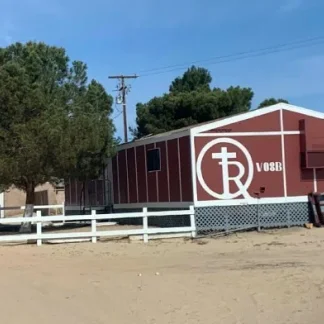The Victory Outreach Ranch
Helendale, California, 73 Lords Rd, 92342
Available Programs
- Adult program
- Program for men
- Program for women
- Young adult program
Insurance and Financial
- Self-pay options
About this Facility
The Victory Outreach Ranch, located in Helendale, California, is an alcohol and drug rehab program that focuses on addiction treatment for men. Their program is based in evidence-based interventions and holistic therapies.
The Victory Outreach Ranch begins treatment with an intake process to determine the best path of treatment. Their programming is offered in a residential treatment format.
The residential program is available for men who need around-the-clock supervision. Individual therapy, group therapy, family therapy, skills classes, and psychoeducational programming are provided. Clients may receive discharge planning to continue on their treatment path upon completion of the program.
The Victory Outreach Ranch accepts most insurance plans, including Amerigroup, Anthem, Blue Cross Blue Shield, Magellan, Cigna, ComPsych, Aetna, Amerigroup, and Kaiser. Out of network benefits may vary, so it’s important to verify coverage with your provider prior to starting treatment.
Contact us for more information: (760) 245-0042

Contact The Victory Outreach Ranch
Connect with The Victory Outreach Ranch by calling their admissions team directly.
(760) 245-0042 Website Get Directions